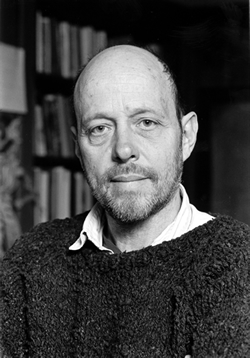New “Independent Journal of Burmese Scholarship” launched
 The life of independent public inquiry, open public debate, and open scholarship and research virtually ceased in Burma, now Myanmar, for the half century after 1962, when the military took over. In 2011 the ruling military junta officially dissolved itself, opening the way for a democratic transition and political “opening.” That same year, James C. Scott, Sterling Professor of Political Science, Professor of Anthropology, and Codirector of the Agrarian Studies Program at the MacMillan Center, proposed to revive under a new name, the tradition of the Journal of the Burma Research Society, founded in Burma in 1910 and abolished in 1979 by the military regime, with the objective of assisting in the training and mentoring of aspiring scholars in Burma and, at the same time, the publication of a high quality journal on issues of importance to the civic-minded public.
The life of independent public inquiry, open public debate, and open scholarship and research virtually ceased in Burma, now Myanmar, for the half century after 1962, when the military took over. In 2011 the ruling military junta officially dissolved itself, opening the way for a democratic transition and political “opening.” That same year, James C. Scott, Sterling Professor of Political Science, Professor of Anthropology, and Codirector of the Agrarian Studies Program at the MacMillan Center, proposed to revive under a new name, the tradition of the Journal of the Burma Research Society, founded in Burma in 1910 and abolished in 1979 by the military regime, with the objective of assisting in the training and mentoring of aspiring scholars in Burma and, at the same time, the publication of a high quality journal on issues of importance to the civic-minded public.
Professor Scott proposed that while avoiding direct political engagement and tendentiousness, the journal would ideally come to be seen as open to serious work in social sciences, history, and the humanities, with historical depth and careful argument on contemporary and controversial issues. The availability of software for open-access, digital journal publishing provided a unique opportunity for virtual publication that could be timely, beyond the reach of ordinary censorship, and allowing for commentary, debate and replies in real time. It was the hope that one day the Journal, would be run largely by scholars based in Burma.
In November 2011, the Council on Southeast Asia Studies at the MacMillan Center provided the first seed money for this project, by sponsoring a workshop hosting ten scholars of Burma, including Burmese scholars of the diaspora who gathered at Yale University for two days and sketched out what they imagined to be the provisional structure and content of such a journal, as well as the opportunities for training and collaboration that was seen as its main purpose. From this initial workshop evolved an organizing committee of Burmese scholars abroad and in Burma, and a handful of Western scholars of Burma, committed to moving the journal forward.
Thanks to the support of President Richard Levin and Secretary Linda Lorimer, preliminary start-up funding for the journal was provided in the form of a grant from Yale University, given “to commemorate the September 2012 visit of Daw Aung San Suu Kyi and to promote her goal of fostering Burmese scholarship.” By 2014, additional funds had been acquired from the Open Society Institute and the Luce Foundation, and a series of workshops were launched in Burma, which would serve to build the content of the first issues of the new journal.
In August 2016, the first issue of the Independent Journal of Burmese Scholarship (thi saq myin hnan), based in Yangon, Myanmar, was published in digital and print versions, displaying articles in both Burmese and English. Four more issues are in various stages of production. As originally conceived, each issue explores a particular theme through peer-reviewed papers, and includes distinctive production values in graphics, art, and layout.
 August 2016, Volume 1, no. 1
August 2016, Volume 1, no. 1
“Special Issue on Poverty” can be viewed here: journalofburmesescholarship.org/issues.html